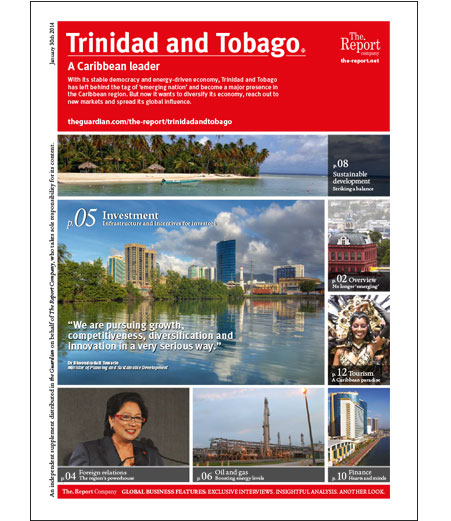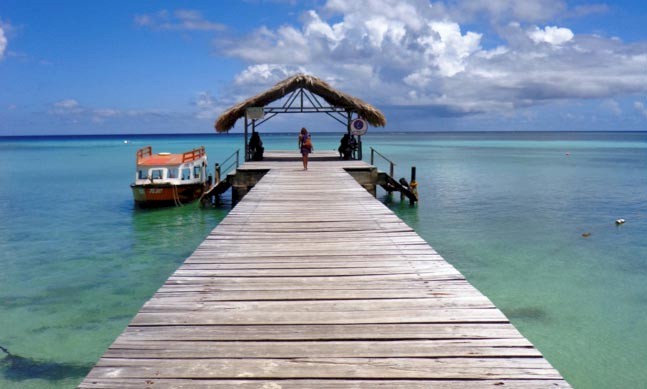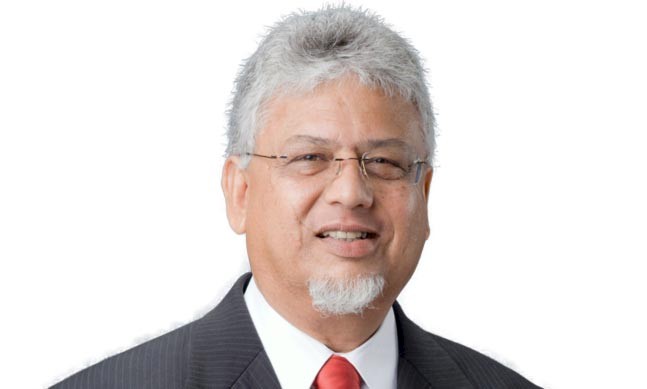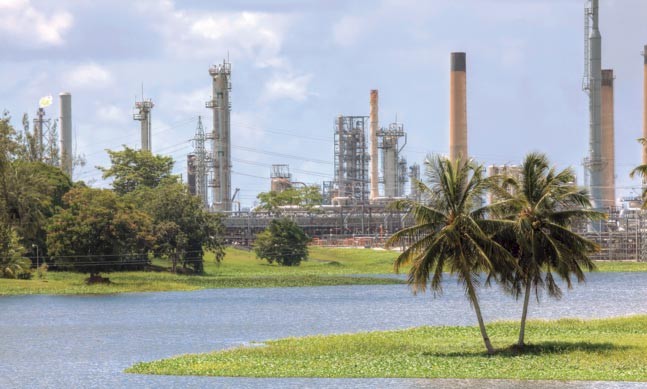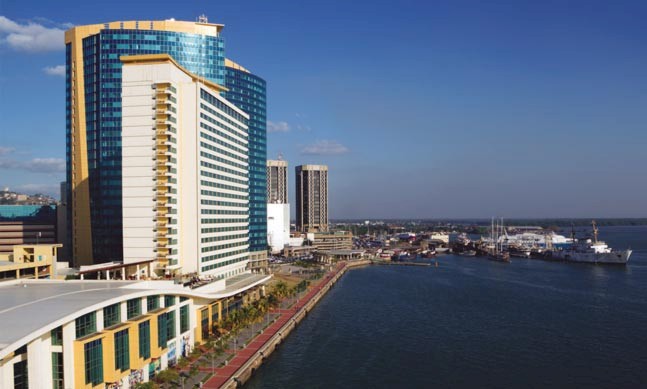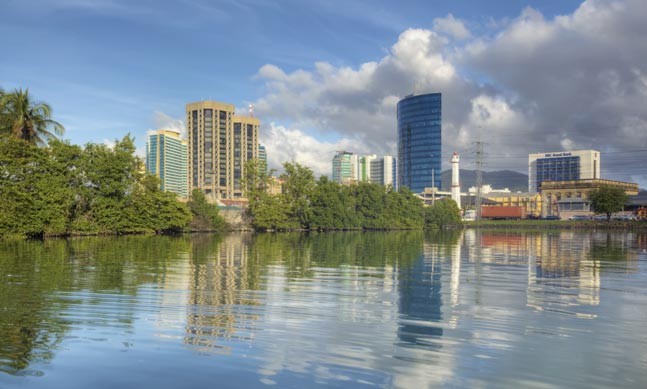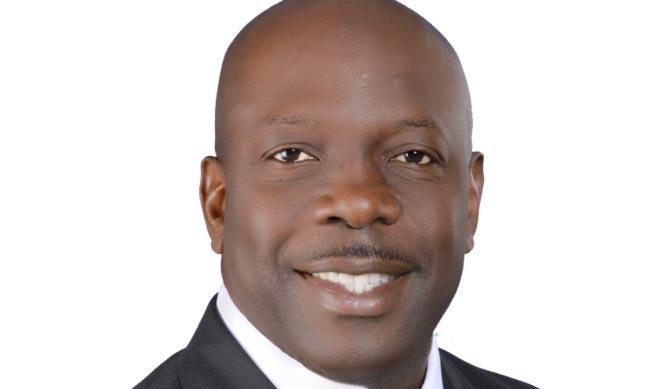Neal & Massy Wood Group is a joint venture which aims to fuse the best of international expertise and local knowledge to deliver high integrity energy services, including performance optimisation, production maintenance and operating cost reduction. Vaughn Martin and Dirk Nuber spoke to The Report Company about the energy sector in Trinidad and Tobago and their outlook for the industry.
The Report Company: How would you appraise the current dynamics of the energy sector in Trinidad and Tobago?
Vaughn Martin: Trinidad and Tobago is in its second wave of maturity in terms of the proven reserves of its assets. We are at a point where we need a new life of energy reserves and I think there’s a great opportunity for us to get that a new injection of life through deep water offshore exploration.
TRC: Does the country have the necessary knowledge and resources to carry out deep water exploration?
VM: Luckily for Trinidad and Tobago we have very strong multinational organisations here such as BP, BG and Repsol who have deep water assets throughout the world so it’s not something that they are not familiar with.
Trinidad and Tobago needed to work the incentives to allow these asset-holders to continue to invest in our country and I think the government has found a nice mixture at this point of time between the incentives and ensuring the country benefits from the reserves.
TRC: Are there opportunities to produce more oil and gas from the existing reservoirs?
Dirk Nuber: Definitely. You can enhance oil recovery significantly if you just apply the right, up-to-date techniques. It just needs an investor, that’s it, and the right kind of fiscal machine. It’s not as complicated as the gas market.
TRC: How do you think shale gas development could impact on Trinidad and Tobago?
DN: Atlantic LNG has already reduced its output to the US by about 75 percent. The US is going to transform itself into a producer and probably even an exporter which is even critical to Atlantic, but they are looking at other markets. The US becoming a gas producer is a big change, but the global energy demand is enough to suck everything up. You can’t satisfy it.
VM: Supply hasn’t surpassed demand as yet.
“Trinidad and Tobago is in its second wave of maturity in terms of the proven reserves of its assets. We are at a point where we need a new life of energy reserves.”Post This
TRC: What has been the strategy for the last decade for the company?
VM: September 2012 marks our 10th anniversary. We are over 600 staff members and it’s a significant milestone for all of us. We have a few members of staff who have been here for the entire ten years. The most important strategy of us coming together is long term partnership. Both Neal & Massy and Wood Group view our clients as key stakeholders in our organisation’s future. We always ensure that relationships we develop with them are for the long term. Our only asset is our people as all we do is sell intellectual property, so people are key to us.
DN: At our heart we are a service provider so we are now looking at services which are beyond the usual business which we are doing. Six years ago, we were a small office of 30 people who did engineering modifications and then all of a sudden we had this contract with BP and we started maintenance which we more or less transferred with Wood Group’s help from Colombia and proportionately the maintenance piece of the business grew and now we are 600 people. It’s an exponential growth. The maintenance business is really giving us a foundation and recently we have been moving into the construction business and we see that developing very well.
There is a need to add construction expertise to all of the rest of the project expertise we have and then going forward into the future it’s almost a given for us that because Neale Massey is so active right now doing energy projects we have to look into how we can satisfy at least part of that value chain with our own services. We are adding the usual type of engineering, procurement and construction stuff, and also later on when plants and facilities are up and running, the maintenance. What we are trying to move into now is operations of facilities, and that will manifest itself with a methanol plant and then some other projects including a steel plant project.
TRC: How would you assess the joint venture model?
DN: We’ve got the perfect model and both parent companies see that. There’s a lot of alignment with the values, safety is always right there at the forefront and people are always right there at the forefront and that alignment works well.
VM: We have very common values, a common vision, and we are very strong organisations that see things quite similarly.
“The government has found a nice mixture at this point of time between the incentives and ensuring the country benefits from the reserves.”Post This
TRC: Which are the main projects you are engaged in?
DN: Our major client right now is BP and so the projects are numerous; we are working quite a lot offshore on all of their facilities on smaller projects as well as onshore. It’s very challenging because you always work on live facilities. That’s the trick. To keep those facilities alive while you’re fixing them is a special expertise.
VM: You get a quick return on your work because it’s live so you see the importance of the work that you have executed. It’s something we have been uniquely good at, partnering with our clients to increase the life and the safety of the assets. So that’s important to us.
DN: It’s difficult for us to talk about one project because there are so many which are equally important for us. Our other clients include Methanex, and we lend help and support to BG. Repsol is another good client.
TRC: What kinds of services can you offer to the companies in Trinidad?
DN: If you go for the lifecycle of a facility then what we offer our clients starts with conceptual studies which is the engineering type of stuff, so the entire value chain, building a facility and the implementing stage during construction. We also provide maintenance, which we offer in the design stage as well with things like reliability evaluations. We’re looking always at leading indicators rather than lagging.
VM: We also focus on safety, and we capture incidents before they occur, always. In the energy industry in Trinidad and Tobago, safety is something we pay very strong attention to.
TRC: What has been the biggest challenge for NMWG?
VM: People.
DN: People are at the heart of our business; we don’t have anything else so getting the right people is our competitive advantage. It’s difficult to replicate that expertise because there is a limited pool of people in Trinidad and Tobago.
VM: When you recruit, you recruit competing with the world. No longer are you only competing with your competitors in Trinidad and Tobago. Retention is another big challenge.


